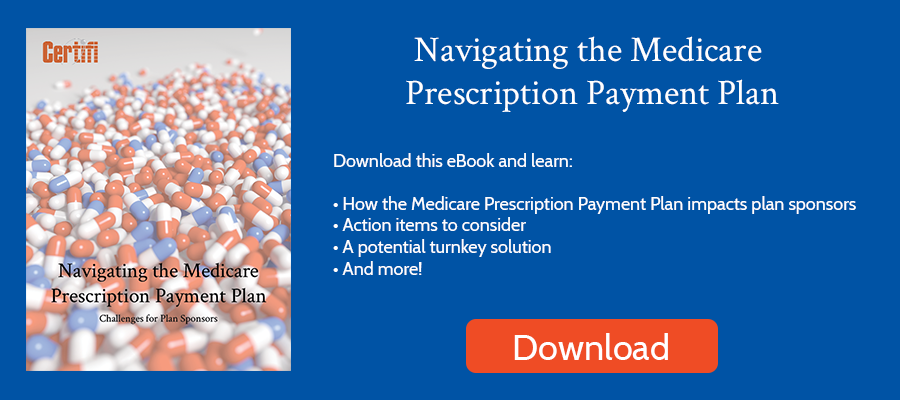On November 15, 2023, the Centers for Medicare and Medicaid Services (CMS) published Medicare Advantage proposed rules that impact Medicare Advantage plan sponsors. The proposed rule covered significant ground, including agent and broker compensation, behavioral health care access, supplementary benefit notifications, and health equity.
Here’s a summary of those Medicare Advantage proposed rules:
Agent and Broker Compensation
CMS proposed new agent and broker compensation rules. The rationale: The Medicare Advantage marketplace has become more consolidated; a few large organizations control most of the market share. Those large organizations offer higher financial compensation than their smaller peers, potentially leading them to lose objectivity.
How are they doing it when there’s a compensation cap? Plan sponsors are presenting these payments as administrative expenses rather than compensation. CMS believes the increasing volume of these payments has led consumers to lodge more complaints.
CMS specifically noted two concerns:
- Paying for travel on a per-enrollment basis
- Organizations that pay Field Marketing Organizations (FMO) for lead-generating activities then give those leads to the FMO’s agents. That may incentivize FMOs to steer enrollees toward those organizations.
To combat these practices, CMS proposed:
- Eliminating contract terms that may directly or indirectly create an incentive that may minimize an agent/broker’s ability to be objective;
- Defining that Medicare Advantage plans include all administrative payments when calculating enrollment-based compensation;
- Change the compensation payment caps to be paid by all plans to be the same to disincentivize agents/brokers from favoring plans;
- Increasing payments by $31 to account for administrative expenses.
CMS would make this rule effective in 2025.
Behavioral Health Care Access
CMS aims to improve Medicare Advantage beneficiaries’ access to behavioral health care services. That includes mental health services as well as substance use treatment services.
One way CMS enables better access is through network adequacy standards. Those standards ensure Medicare Advantage plans have adequate resources for their members. Generally, CMS applies time and distance standards to ensure network adequacy.
Effective January 1, 2024, Medicare Advantage plan sponsors must show network adequacy standards in four behavioral health types – psychiatry, clinical psychology, clinical social work, and inpatient psychiatric facility services.
In this proposed rule, CMS wants to implement network adequacy requirements for an additional behavioral health type, Outpatient Behavioral Health. The proposed rule further defines Outpatient Behavioral Health services and facilities while setting the maximum time and distance standards in each county type, ranging from large metro to counties with extreme access conditions. The time ranges from 20 to 110 minutes, while the distance spans 10 to 100 miles.
Mid-year Enrollee Notification
Many Medicare Advantage organizations offer supplemental benefits – like dental, vision, hearing, transportation, and fitness – in their plans, and the number has increased. CMS directed nearly $61 billion toward supplemental benefits in 2023.
Yet, according to CMS, utilization of these benefits is low, possibly because plans fail to communicate. Plans may use the benefits as a marketing tactic to entice enrollees but fail to encourage beneficiaries to use those benefits.
To help improve supplemental benefit usage, CMS proposed that effective January 1, 2026, Medicare Advantage plan sponsors mail a mid-year notice – between June 30 and July 31 – with information about each supplemental benefit that the member has failed to use. For those who enroll mid-year, CMS is taking comments about how best to communicate unused benefits.
The notices should provide:
- The scope of the benefit
- Any applicable cost-sharing
- Instructions about how to access the benefit
- Information about network providers for the benefit
- A toll-free and TTY number if additional help is needed
Health Equity Analysis
CMS believes Medicare Advantage utilization management practices – like prior authorization – may prevent beneficiaries from accessing care. It may also disproportionately impact those who have been historically underserved, marginalized, and adversely affected by persistent poverty and inequality, leading to worse medical outcomes.
To improve health equity, CMS proposed two new items:
- A previous rule required all Medicare Advantage organizations that leverage utilization management practices to create a Utilization Management Committee to review and approve policies. CMS proposed that the Utilization Management Committee include at least one member with health equity expertise.
- Additionally, that committee must perform an annual health equity analysis of prior authorization use. The member with health equity experience must approve the final report before it is publicly available on the plan’s website.
The analysis would review the impact of prior authorization for those receiving a low-income subsidy, being dually eligible for Medicare and Medicaid, or having a disability.
The analysis must include the following metrics for the population mentioned above and those outside of that population:
- The percentage of standard prior authorization requests that were approved and denied across all services
- The percentage of standard prior authorization requests approved after appeal across all services
- The percentage of prior authorizations that extended the time for review that the plan ultimately approved across all services.
- The percentage of expedited prior authorization requests approved and denied across all services
- The average and median time elapsed between the submission of a request and a determination by the plan for both standard and expedited prior authorization requests across all services
Plans must post the first health equity analysis by July 1, 2025, and then annually after.
These proposed rules enter a comment period until January 5, 2024.
Certifi’s health insurance billing and payment solutions help Medicare Advantage payers improve member satisfaction while reducing administrative costs.







